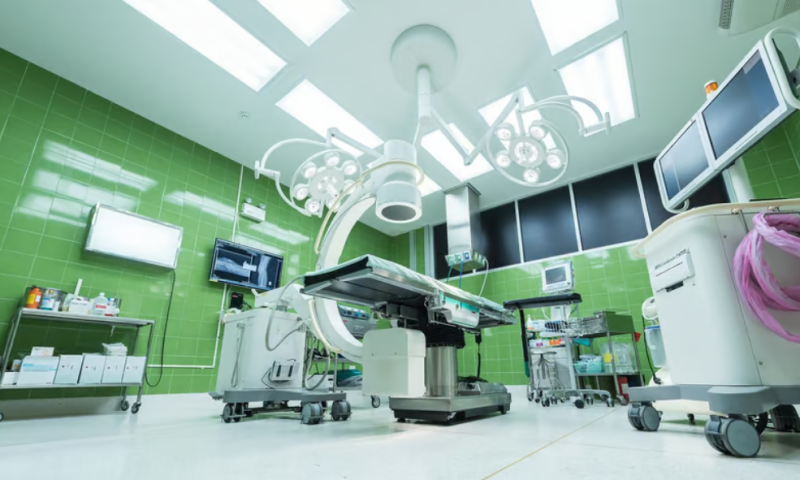Surgical robot maker Noah Medical has delivered first-in-human clinical data from its Galaxy system, designed to navigate through a patient’s airway and probe the lungs for potential cancers and other conditions.
The company was buoyed by a $150 million venture capital funding round earlier this year, which paired up with an FDA clearance for its Galaxy bronchoscopy system in March.
The system combines single-use hardware with real-time imaging software and allows the surgeon to collect biopsy samples from suspicious nodules in the periphery of the lungs via a video-game-like controller.
Preliminary results from the clinical trial, which was conducted at Macquarie University Hospital in Sydney, showed the system had a 100% success rate in navigating the bronchoscope to each of 19 targeted lung lesions, using integrated tomosynthesis and fluoroscopy imaging.
The study also confirmed that the biopsy tool was able to be placed within the lesion in every case, resulting in diagnostic yields between 89.5% and 94.7%—though Noah said patient follow-ups will be needed to establish final yield data.
“The ability to accurately and safely navigate to and biopsy lung nodules with complete confidence is a game-changer for pulmonologists in the fight against cancer,” Macquarie University’s Tajalli Saghaie, M.D., the study’s co-principal investigator, said in the company’s announcement.
Noah did not list any major complications during the procedure nor in the seven days that followed. The trial’s results were presented at the annual conference of the American Association of Bronchology and Interventional Pulmonology.
The company previously kicked off the commercial launch of the Galaxy system in May, disclosing its first use at the University of Chicago.

